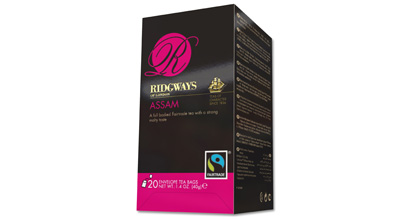

INITIATIVES > ENVIRONMENT > ETHICAL PRACTICES IN TEA
ETHICAL PRACTICES IN TEA
084

Typhoo Tea´s Corporate Sustainability Plan 2010 – ´Greenprint for Good´ encompasses suppliers, customers, local community and most importantly employees. While many new initiatives have been taken under this plan, we are passionate about trading ethically and this is highlighted by the ethical tea sourcing procedure launched by Typhoo way back in 1992 – the Quality Assurance programme
All Apeejay Tea Group Estates in Assam are active participant of the Ethical Tea Partnership and Ethical Trading Initiative led by Typhoo, through which they commit to responsible business practices in tea.
Typhoo works in partnerships with the tea plantations that it buys from, to continually improve the condition of people who grow, tend and harvest our tea. We also help several tea suppliers achieve third party certifications such as Fairtrade and Rainforest Alliance.
By 2010 two of Apeejay´s tea plantations in Assam – Budlabeta and Khobong – were Fairtrade Certified and more are on their way to achieving the certification. Fairtrade certification favourably impacts the quality of life of the garden workers, bringing to them a host of economic, social and environmental benefits. In 2011, Typhoo, launched one of its own brands as Fairtrade and is now the first tea packer to support International Union of Food workers (IUF), making continual improvements in the working conditions in Apeejay Tea Group´s estates in Assam. Typhoo is also the first tea company to support Fair Working Conditions in our tea estates in Kenya and India, with a globally benchmarked working environment and labour standards. All Typhoo suppliers are encouraged to join the Sedex self assessment system to improve their labour standards, helping our internal teams to monitor continuous improvements.